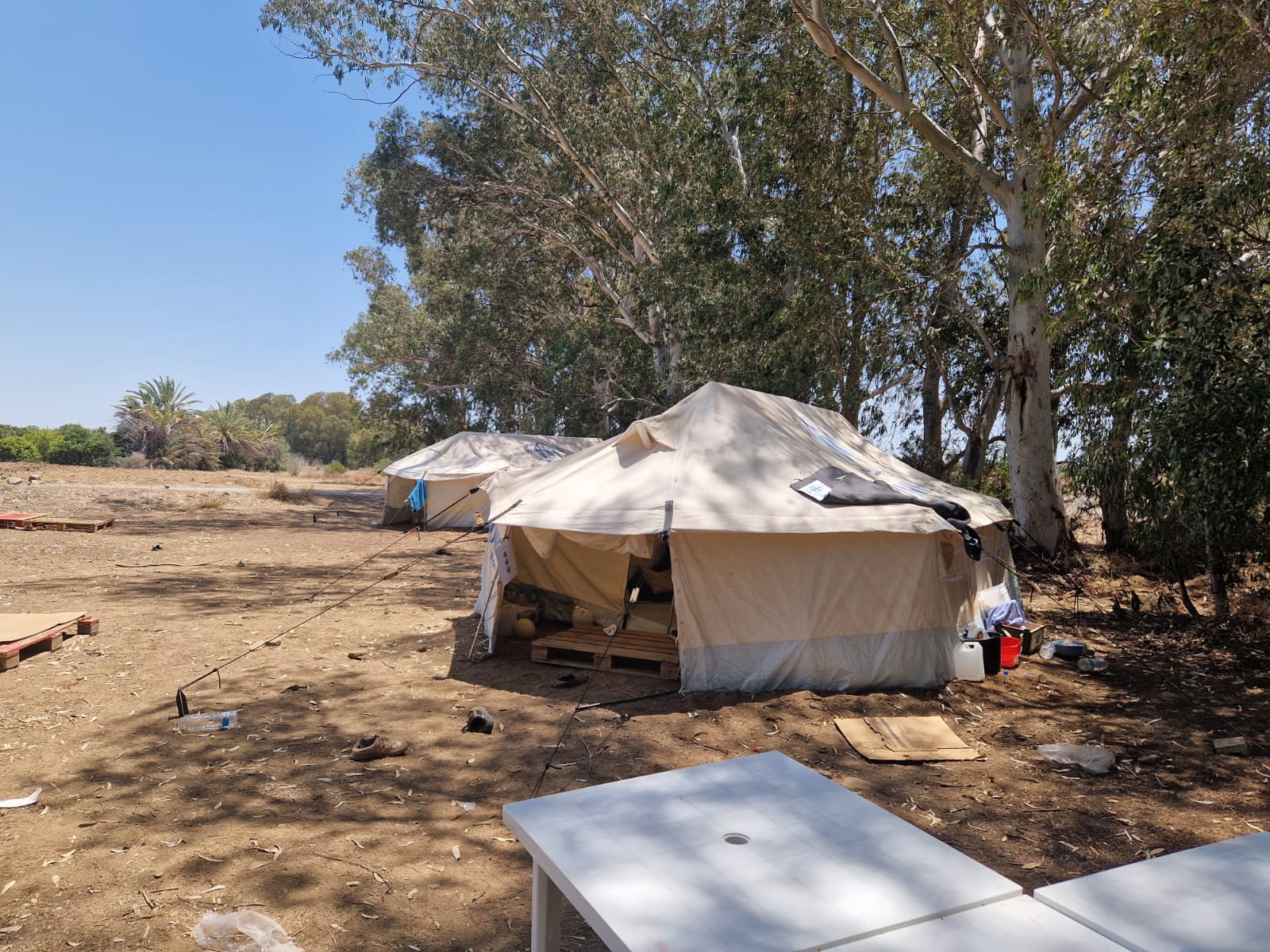
Two women stranded in the buffer zone have attempted suicide due to the poor conditions which have been ongoing for months, the Council of Europe’s Human Rights Commissioner Michael O’Flaherty said, raising concerns over the conditions migrants are subject to.
In a letter to President Nikos Christodoulides, he said Cyprus has an obligation to ensure the migrants are granted access to asylum proceedings immediately, while he expressed concern over allegations migrants are pushed back and subject to excessive violence.
He also told the President that Cyprus must resume processing Syrian asylum applications.
The letter exchange was shared on X on Thursday, as was Christodoulides’ response in which he blamed Turkey for instrumentalising the migration crisis, while also rejecting pushback allegations at sea.
Though the government has cited the Green Line regulation as a reason not to process any asylum claims from the migrants stranded in the buffer zone, O’Flaherty rejected it, saying “this Regulation cannot be interpreted as providing a legal basis to derogate from Cyprus’ obligations under international refugee and human rights law.”
“I respectfully ask the Cypriot authorities to ensure that effective access to asylum procedures and to adequate reception conditions is given to all those currently stranded in the buffer zone.”
Admitting the migrants to government-controlled areas appears to be “the only possible way to ensure adequate protection of their human rights.”
The Commissioner’s letter dated October 23, said “I am concerned about the situation of some 35 people, including young children and other vulnerable persons, who have been in the buffer zone for several months.”
While Cyprus’ authorities were providing food and drinking water, “poor living conditions prevail, including reported difficulties in obtaining access to certain items, such as formula milk or diapers for babies, and to medical care in a manner guaranteeing confidentiality and dignity.”
There are also difficulties in obtaining access to interpretation services, O’Flaherty said.
As such, there are significant risks that Cyprus is violating the migrants’ human rights, as put forth in the European Convention on Human Rights (ECHR).
The Commissioner specified he was concerned of allegations that “unnecessary or excessive use of force” was being used against asylum seekers and migrants that reach the buffer zone and are then brought back to the buffer zone by law enforcement agencies.
O’Flaherty also shared concerns about “repeated reports” that boats carrying migrants “have been prevented from disembarking in Cyprus and summarily returned, sometimes violently, without any possibility for their passengers to access the asylum procedure.”
In his response, Christodoulides rejected allegations that pushbacks were being carried out at sea and stressed that the country has received a “disproportionate number of Syrian nationals” that has severely strained the country’s asylum system.
He added Cyprus has “always been a law-abiding state” and Syrian nationals “enjoy all the rights envisaged for asylum seekers.”
Where the buffer zone is concerned, Christodoulides said Turkey is instrumentalising migrants, and the government has made it a priority to prevent this.
As such, the government “will make every effort to prevent the normalisation of irregular crossings through the Green Line.”
Should the route become normalised, “criminal networks will increasingly use this passage to smuggle thousands of irregular migrants into Cyprus.”
Christodoulides added that Cyprus does not overlook the humanitarian aspect but assured the matter would be resolved in the next few weeks.
He rejected allegations of the use of violence or excessive force against migrants.


